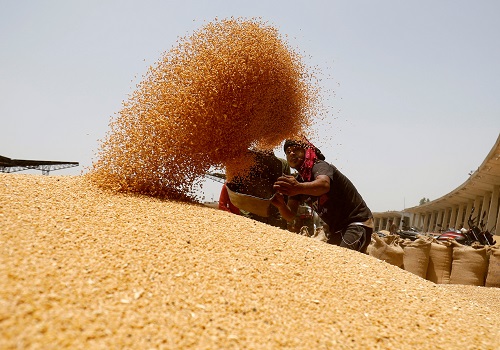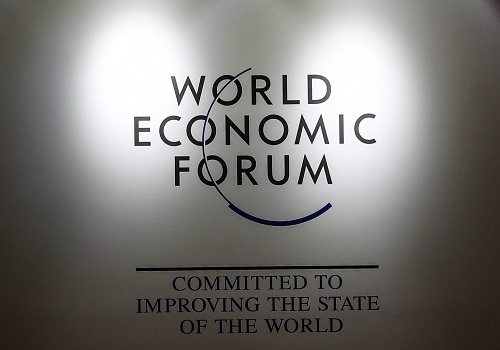Merchandise Trade : The trade deficit widened to USD26.9bn - Emkay Global Financial Services

Follow us Now on Telegram ! Get daily 10 - 12 important updates on Business, Finance and Investment. Join our Telegram Channel
https://t.me/InvestmentGuruIndiacom
Download Telegram App before Joining the Channel
Moderation across exports and imports
* The trade deficit widened to USD26.9bn, as weak global demand continued to weigh on exports, in addition to the various export restrictions.
* Exports contracted 16.0% MoM, largely owing to a decline in exports of engineering goods, petroleum products and pharma. Imports also declined, by 7.3% MoM, with core imports falling 10.3% MoM – reflecting weak domestic demand. Oil imports were virtually unchanged and, with a drop in oil exports (-36.0% MoM), the oil deficit soared to USD11.1bn.
* The FYTD23 merchandise trade deficit (USD175.4bn) implies that the FY23 CAD is likely to clock near record-highs, with upside risks, as India's potentially-faster growth path amid a deteriorating global backdrop could carry risk of a wider CAD. We maintain our FY23 CAD forecast at 3.4%. Capital account will remain tricky too, indicating that the BoP deficit may soar to USD67bn vs +USD47.5bn in FY22.
Exports see sharp fall, weighing on trade deficit
October trade deficit widened to USD26.7bn from USD25.7bn in September, making it the fourth consecutive month clocking above USD25bn. This widening was led by sharper sequential correction in exports vs imports. Exports declined by 16.0% MoM (-16.7% YoY) to USD29.8bn, a 20-month low, reflecting the persistent weak global demand. This is now the fourth straight month when exports have fallen, also indicative of the various export curb-measures taken by the government. Oil exports declined by 36% MoM, largely due to volume effect amid increase in export taxes in mid-October and pick up in domestic consumption during the festive season, especially of diesel. Non-oil, non-gold (core) exports declined by 10.7% MoM (-17.0% YoY), mainly led by drop in exports of engineering goods (-11.8% MoM; -21.3% YoY) and pharma products (-14.7% MoM; -9.2% YoY). Engineering goods have been a bulwark for Indian exports post Covid, but falling global-goods demand has led to this segment of exports declining in six of the last seven months.
Imports decline, owing to weaker NONG demand
Imports moderated to 5.7% YoY in October (8.7% in September) to USD56.7bn; however, they lost momentum sequentially (-7.3% MoM), falling for four months in a row. Oil imports were resilient, (-0.2% MoM; 29.1% YoY), reflecting festive demand as well as the higher crude-oil prices during the month. This led to the oil deficit rising to USD11.1bn. Non-oil, Non-gold (NONG) imports also fell, by 10.3% MoM – indicating some cooling in domestic demand. Within NONG, imports of coal, electronic goods and vegetable oils decreased. Gold imports declined by 4.0% MoM (-27.5% YoY) to USD3.7bn, after two months of stocking up for the festive season.
We maintain FY23E CAD/GDP at 3.4%; BoP deficit to be above US$60bn
The FYTD23 merchandise trade deficit has registered a deficit of USD175.4bn as against USD94.2bn during the same period in the last financial year, implying that the current account deficit is likely to be at record highs. The merchandise trade deficit is likely to remain over USD20-25bn for an extended period, amid still-elevated energy prices and high global uncertainty. However, easing commodity prices in coming months could see the deficit moderate. India's potentially-faster growth path amid a deteriorating global backdrop could carry risk of a wider CAD. Expectations of a larger trade deficit of USD272bn imply that our FY23 CAD forecast stands at USD118bn (3.4% of GDP). CAD funding pain is likely to linger, as global portfolios continue to reassess positions amid financial tightening & recession fears, thus demanding higher EM risk premia. FPI (equity) flows ahead would remain negative, but we believe Q4FY23 will see mild inflows, as CY22 bears the front-loaded pain. On net basis, even if we assume FDI as sticky, we see FY23E BoP deficit soaring to USD67bn from a surplus of USD47.5bn in FY22. This implies complementary policy efforts on both, the fiscal and monetary fronts, essentially reflecting the looming pain on BoP, funding risks and external imbalances thereof, apart from limitations on the RBI’s FX intervention.
To Read Complete Report & Disclaimer Click Here
Please refer disclaimer at https://www.reliancesmartmoney.com/disclaimer
SEBI Registration number is INZ000172433
Above views are of the author and not of the website kindly read disclaimer










Top News

Government working with startups to create server & IT Hardware manufacturing ecosystem in I...
Tag News

Monthly Debt Market Update, September 2023: CareEdge Ratings











